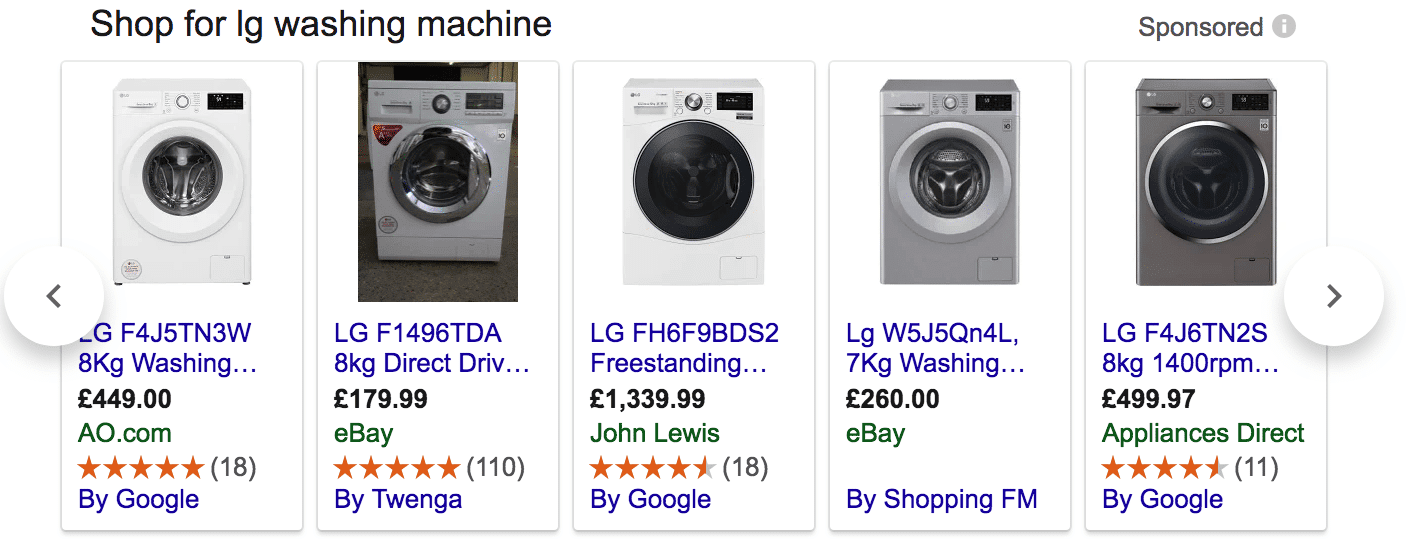Google’s Shopping service is a key source of traffic for ecommerce companies. And since 2017, price comparison websites have been able to get in on the action. But has this change worked for everybody?
In response to a competition law breach, Google has allowed comparison websites – which are classed as ‘Comparison Shopping Services’ – to submit product data on behalf of other merchants to Google Shopping.
Sounds good, right? The problem is – when using this type of advertising, there is a potential downside for merchants? If this change has had an impact on your business, read on as we take a closer at Comparison Shopping Services and what you can do.
The introduction of Comparison Shopping Services
Comparison Shopping Services (CSSs) were launched in 2017, in response to Google’s £2.2 billion fine from the European Union. The Union’s commission found that Google had unfairly promoted its own shopping service on its search engine results pages (or SERPs).
By consistently putting its own shopping service at the forefront of search results, Google was found to be in breach of competition law – which promotes fair competition across the European Economic Community.
To avoid further non-compliance payments, Google implemented the CSS feature, allowing price comparison sites to submit data on behalf of other merchants. As part of the CSS feature, each Google Shopping advert must display who it was supplied by at the bottom…

Within the integration, Google is classed as a CSS which can add data on behalf of its merchants – essentially putting itself on a level playing field. All CSSs then bid on behalf of their merchants, with winning bids gaining prominent placement for their chosen searches. This can present a number of potential issues for merchants.
Giving your permission
The most prominent issue is permission. It appears many CSSs are able to submit product data from their clients’ websites without gaining express permission. Why? The Google Merchant Center has settings that allow them to do this. As a result, merchants are seeing traffic directed to their products on comparison sites rather than directly to their own ecommerce store.
With comparison sites usually earning a percentage of sales generated through their site, ecommerce merchants might prefer to have only their own adverts on Google Shopping. If this is the case, CSS adverts have another potential issue. They may also stop your ads winning auctions for the same product.
Fortunately, it’s possible to fix the problem. Google Merchant Center allows users to see whether other sites have submitted their product data. If you don’t want other sites to do this, you can simply untick the box…

Is CSS taking off?
Google has launched its new feature to get away from extra EU non-compliance payments. At present, it seems like that’s all it’s doing, with the majority of ads still from Google. The Financial Times performed over 500 product searches across six European countries. They found that competitors (non-Google CSSs) accounted for less than 1 percent of shopping box ads.
Why is this the case? It’s most probably down to the way comparison sites operate. Rather than charging per click-through, like Google Shopping, many charge a percentage on sales. With this in mind, bidding on places for adverts can’t provide a sustainable profit for those companies.
Ecommerce made easy
Whether it’s Google Shopping or in-app purchases, Fluid Digital has the expertise to help you get the most out of your ads. We combine a tailored approach to advertising with industry-leading expertise and years of experience. By getting to know your business and targets, our in-house pay-per-click experts can highlight all the most important features of your ads to drive success for your ecommerce store.
Contact us today to talk in more depth about your pay-per-click campaigns.





